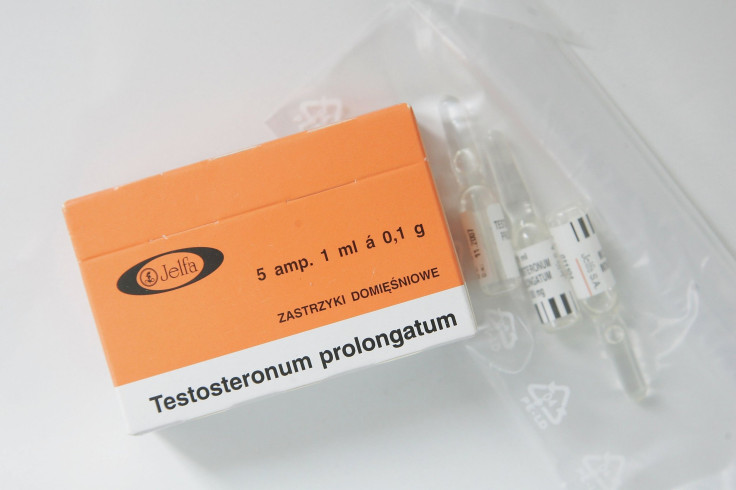Testosterone And Steroid Abuse: FDA Issues Changes In Labels, Steps Up Warning

The United States Food and Drug Administration (FDA) announced the new labels for prescription testosterone on Tuesday, to prevent the abuse of testosterone and other steroid drugs. The new warnings will outline the serious health risks associated with the misuse of these products.
“The new warning will alert prescribers to the abuse potential of testosterone and the serious adverse outcomes, especially those related to heart and mental health that have been reported in association with testosterone/anabolic androgenic steroid (AAS) abuse,” the FDA said in a statement.
Testosterone and other AAS have schedule III classification by the Controlled Substances Act and have been known to be abused by adults and adolescents, especially athletes and body builders.
The abuse of these products has been associated with a number of serious health and safety implications — including heart attacks, stroke, depression, liver toxicity, male infertility , aggressive behavior and hostility — according to the FDA. Testosterone abuse is also linked to withdrawal symptoms once the person stops taking the drug — like fatigue, irritability, loss of appetite, insomnia and decreased libido.
The FDA has approved prescription testosterone for treating men who have low testosterone levels arising from certain medical conditions that affect the production of the hormone— for example hereditary conditions that prevent the production of testosterone, or damage to the testicles, chemotherapy, infection or others.
However, in some cases, doctors prescribe testosterone to even those men who are experiencing a natural decline of the hormone with age — referred to as “low T.”
According to Live Science, a 2013 study found that almost 25 percent of men receiving prescription testosterone were not measured for the levels of the hormone in their systems before the treatment started. The FDA’s revised labels require the addition of information in the warning and precautions section, calling on prescribers to measure serum testosterone concentration if abuse is suspected in any case.
© Copyright IBTimes 2024. All rights reserved.





















